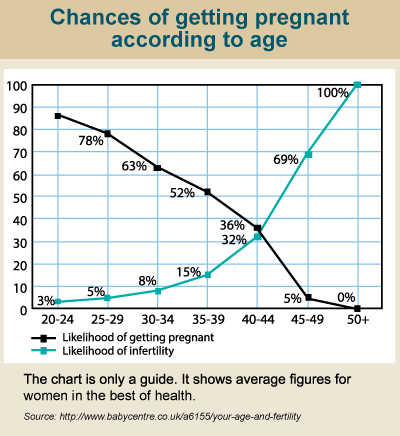There is a trend developing among women where many choose to wait longer before starting a family. Women (and men) may want to build their careers, be in a relationship with the right partner, be financially and emotionally stable, or any combination of these factors.
According to Malaysia’s Fifth Family and Population Study (KPKM-5), 35.7% of women are still single because they cannot find a suitable candidate. Whereas 56% of men quote financial problems as the main reason they postpone marriage.
However, many young people are not aware of the impact age has on fertility. As women mature, the likelihood of getting pregnant decreases while the likelihood of infertility rises. Fertility in men also decreases with age and there is a higher chance of them producing sperm with chromosomal abnormalities.

Did you know?
Infertility is described as the failure of a couple to become pregnant after a year of regular, unprotected intercourse. About a third of infertility problems are due to female infertility, and another third is due to male infertility. The other third may due to both or reasons be unknown.
As women grow older, ovulation becomes infrequent and the amount of good quality eggs reduces drastically, making it more difficult to conceive. Research has also shown that there is an increased rate of chromosomal abnormalities in women of advanced reproductive age.
Miscarriages and other pregnancy-related complications, including gestational diabetes and high blood pressure, are more common for women over 35. Age-related decline in fertility and the increased likelihood of miscarriage mean that waiting to have kids can put extra physical stress on a woman’s body and affect the well-being of her baby. Other women opt to steer away from having a child altogether because she (or her partner, or both) may have a genetic predisposition (e.g. Thalassemia, Down Syndrome) and fear for their unborn child’s future well-being.
However, if you are thinking of embarking on the journey of parenthood but have the above mentioned concerns, you should consider:
- educating yourself about the increased risk of chromosomal abnormalities and the type of tests available to detect them. A genetic counsellor, fertility expert or gynaecologist should be able to fill you in on detailed information and help you figure out which tests are suitable for you.
- making sure any existing medical condition (e.g. high blood pressure, diabetes, thyroid disease, obesity) is in a stable, controlled state before considering pregnancy. Discuss pregnancy with your doctor and how it might affect your current medical condition.
- practising a healthy lifestyle by eating a nutritious and balanced diet as well as getting plenty of exercise.
Similarly, advances in fertility treatment and milestones achieved in the field of reproductive technology over the years has given many couples a chance to realise their dreams of having a family. For example:
- In Vitro Fertilization (IVF) – the process of fertilizing the egg and sperm in a laboratory, and then transferring the embryo to the uterus.
- Intrauterine Insemination (IUI) – sperm is inserted into uterus using a special device near to the egg at time of ovulation.
- Intracytoplasmic Sperm Injection (ICSI) – performed as part of IVF treatment cycle where a single sperm is injected into an egg using very fine micro-manipulation equipment.
- Cryo-storage – freezing of human tissues (e.g. semen, eggs and embryos) and storing them in specially designed tanks to be used when a couple decides to conceive.
- PGD & PGS – procedure whereby IVF-acquired embryos are tested for genetic disorders and only those embryos which are healthy are chosen for implantation.

Nevertheless, it’s important to note that you will have a higher chance of conceiving and delivering a healthy and happy baby while in your 20’s and early 30’s. And, if you do have fertility problems, the sooner you see a gynaecologist, the more likely he or she will be able to address it. So don’t wait too long before asking a specialist for help.
An educational collaboration with Obstetrical and Gynaecological Society of Malaysia.







Comments